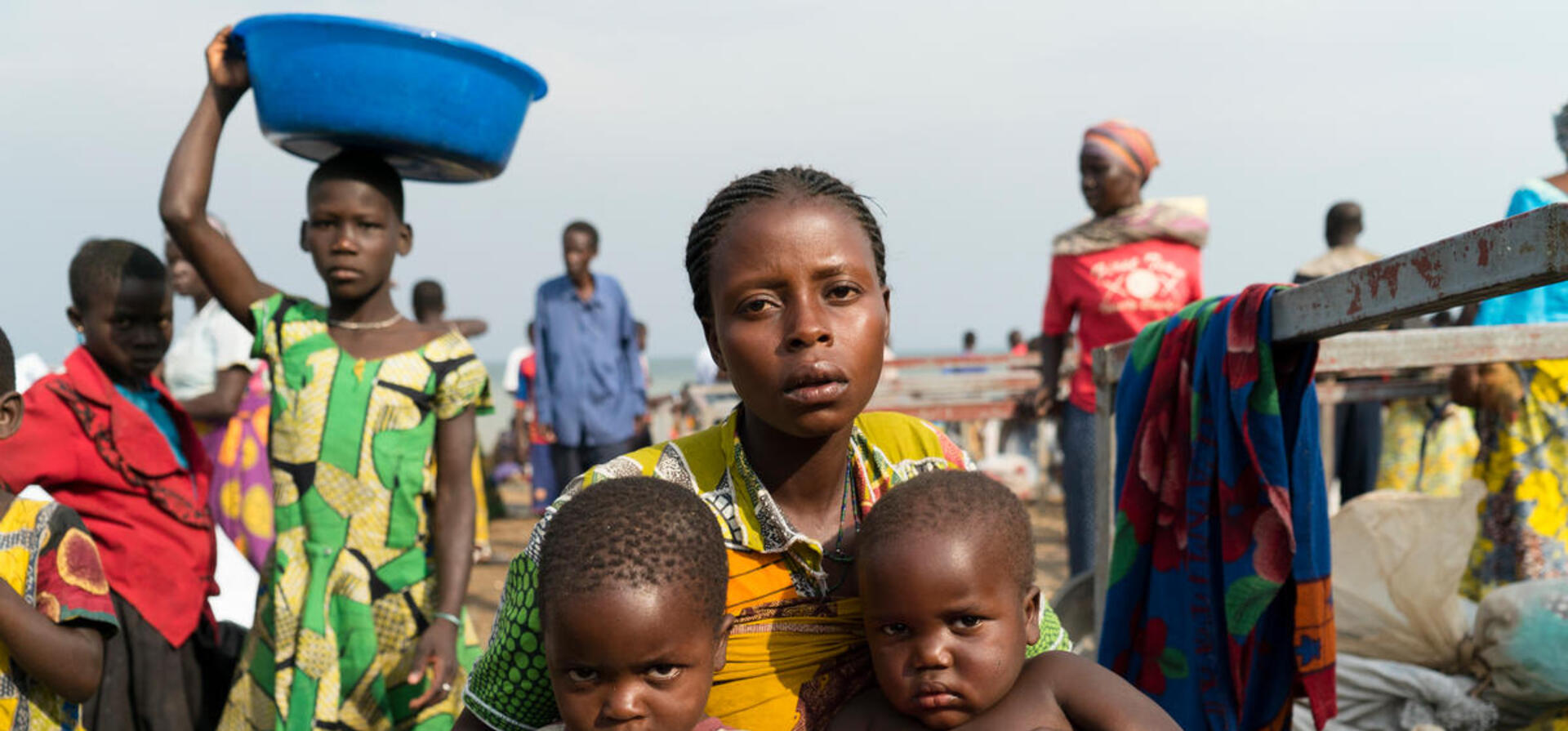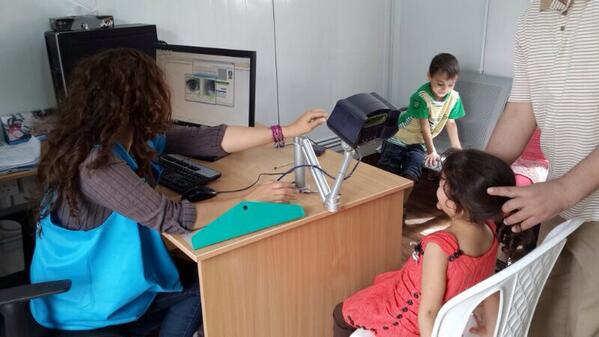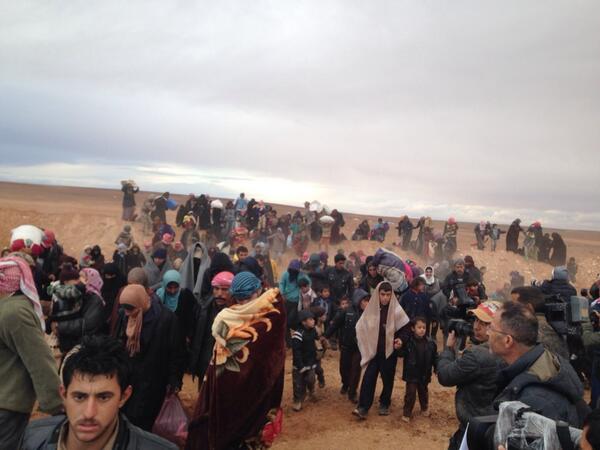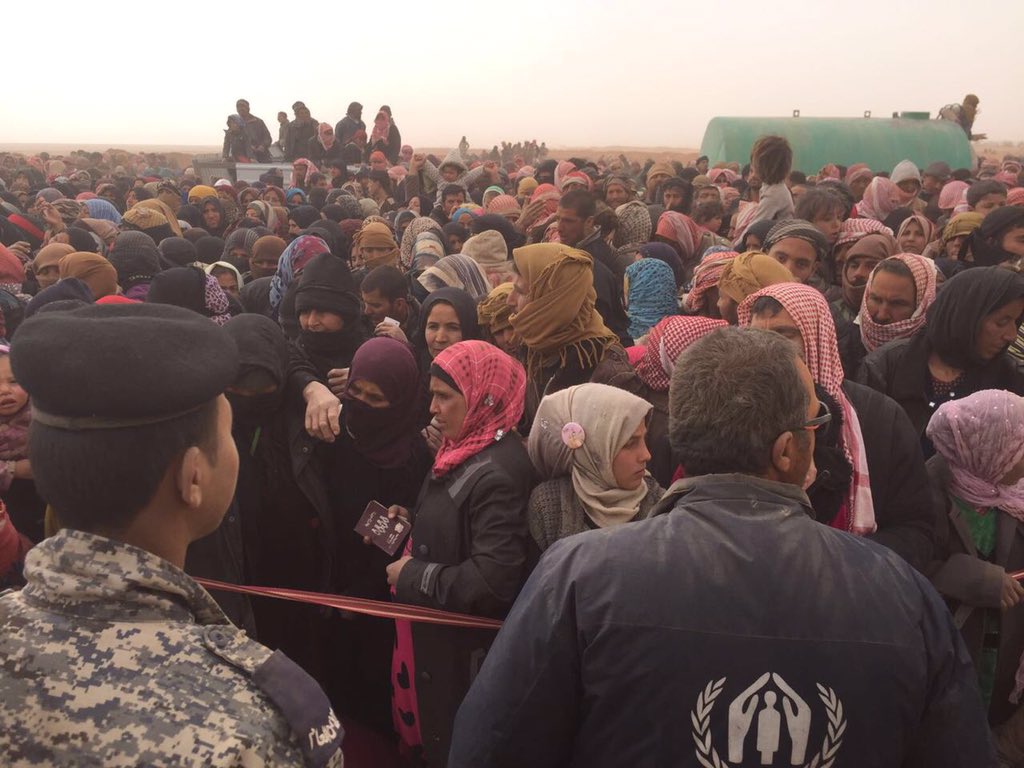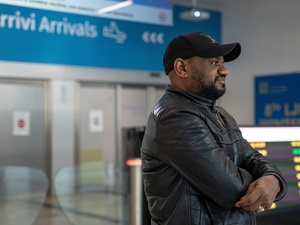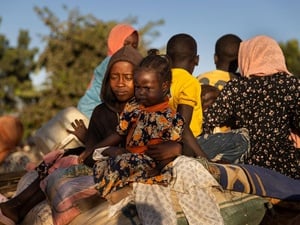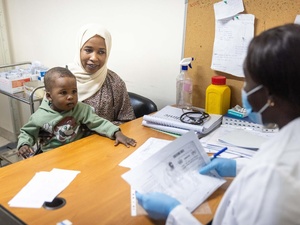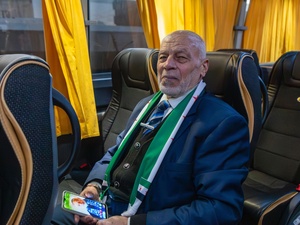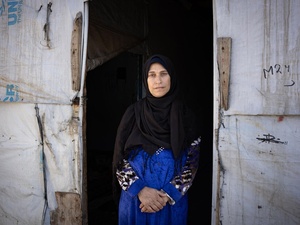'We must believe we can make a difference and we can do things better' - Andrew Harper
Name: Andrew Harper, from Australia.
Job title: UNHCR, Director of Programmes, based in Geneva.
UNHCR assignments: West Timor, Ukraine, Albania, Iran, Iraq, Jordan and at headquarters in Geneva.
You have just been in Uganda, where thousands of Congolese refugees have fled fighting in the Democratic Republic of the Congo. What did you see?
The refugees were coming across Lake Albert in boats from the Democratic Republic of Congo.
I don't think I've seen a situation before where people have been forced to flee by boat, who have got so little money or people to support them.

A Congolese refugee helps her child reach the shore at Sebagoro, Uganda, after crossing Lake Albert in a boat in February 2018.
They brought everything they owned with them. They loaded up the boats with their blankets, their pillows, their plastic chairs, the remains of the church, their goats. They brought their goats to sell so that they could send the money back in order that their brothers, their sisters, their aunts and uncles could afford to get another boat to come over, because they had no money.
How do you manage to stay optimistic given the growing numbers of refugees and the atrocities you have seen?
We've got no choice. We have to be because people are looking to you to be positive about the outcome. Refugees are in a pretty tough situation, as it is. We are fortunate to be in a position where we're able to help others and influence something for the good. But you're never happy with the delivery. You should always be working for something better.
"You should always be working for something better."
I think every situation provides you with an opportunity. For instance, it's obviously challenging in Uganda at the moment, but that is giving us the opportunity to introduce biometric registration of refugees, based on iris scanning. This is one of the main objectives for us globally now.
Why is an iris scan so important to a refugee?
Before, we'd be reliant on ration cards, pieces of paper which refugees would take with them in order to say who they are. But if refugees moved they would sell these or give them to somebody else. What we introduced was a way in which we could identify every refugee by scanning their eyes. So you have a camera and you take a snapshot of their eyes.

For a refugee it is sometimes a bit challenging to have documents with you because sometimes they are taken off you. Now you've always got that sense of identity. You can go somewhere and prove it's you.
You were UNHCR's country representative in Jordan during the height of the Syria crisis. You were in charge of moving huge numbers of desperate Syrians to safety. What challenges did you face?
At the high point, I think we were moving 80 buses of refugees per night to Za’atari camp. That's quite a few. And so that meant we had to put up tents during the day and during the night in order to make the system work.

Our objective was to move people away from the border soon as possible, supported very much by the Jordanian Armed Forces, and put them in a place where they could be safe, which we did. It's not what anyone would want. But I think the team there, and the people of Jordan, did what we could in that situation.
How did it make you feel to see children in this situation?
You know what really tugs at my heart is the parents, because the children are always looking to their parents to get them out of hardship. And you see the fathers who are unable to really protect their children. You see the mothers who just don't know what to do.

It's often the children that are actually much more resilient. They will adapt but how do we empower the parents more? How do we return a sense of future to the parents?
You're active on Twitter and the way you describe yourself is that you love all things innovative and that you despise long meetings and pessimism.
But doesn't everyone? I think our role has to be one of believing that we can make a difference and that we can do things better, because if we don't believe that, what sort of hope do we give to the refugees?


